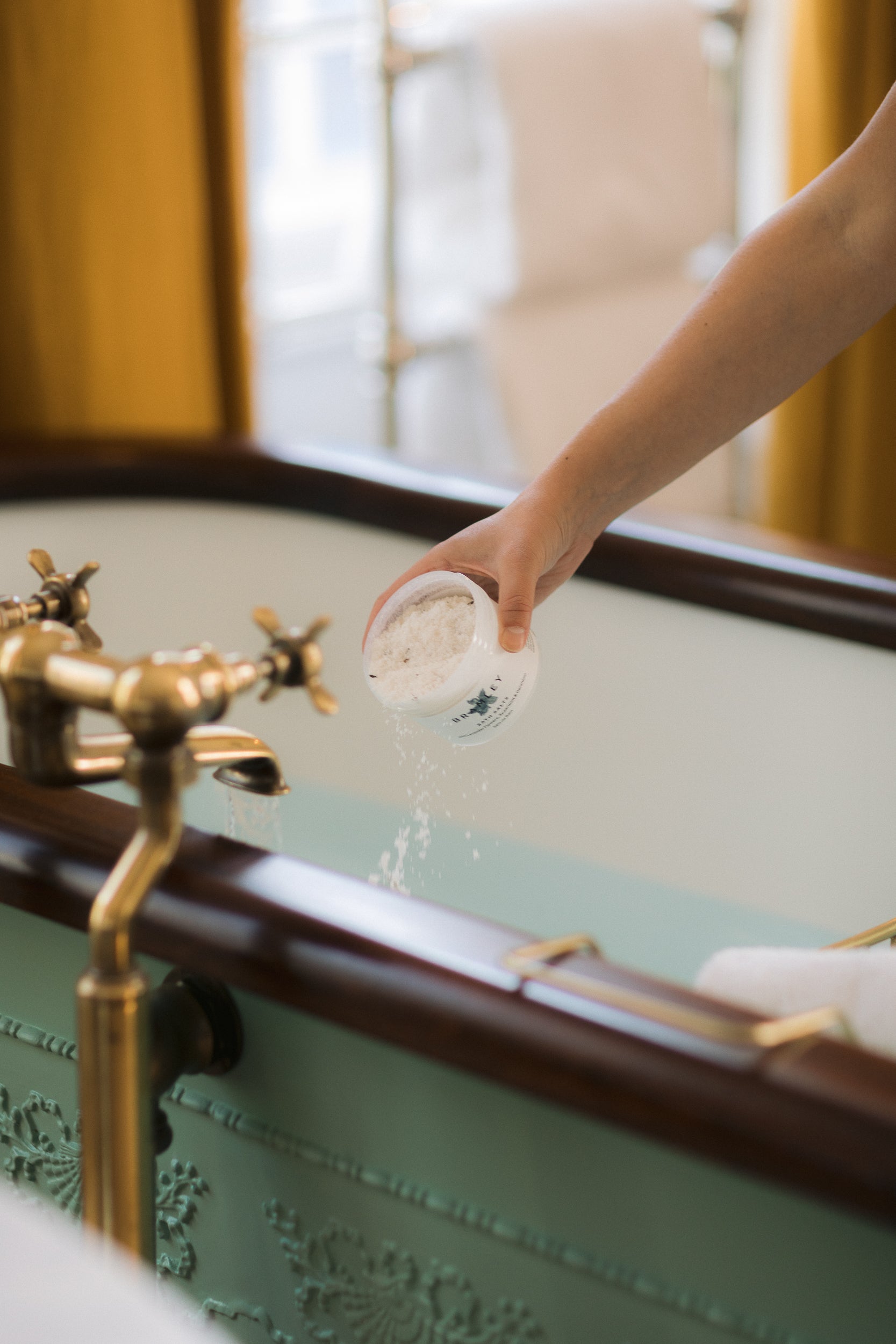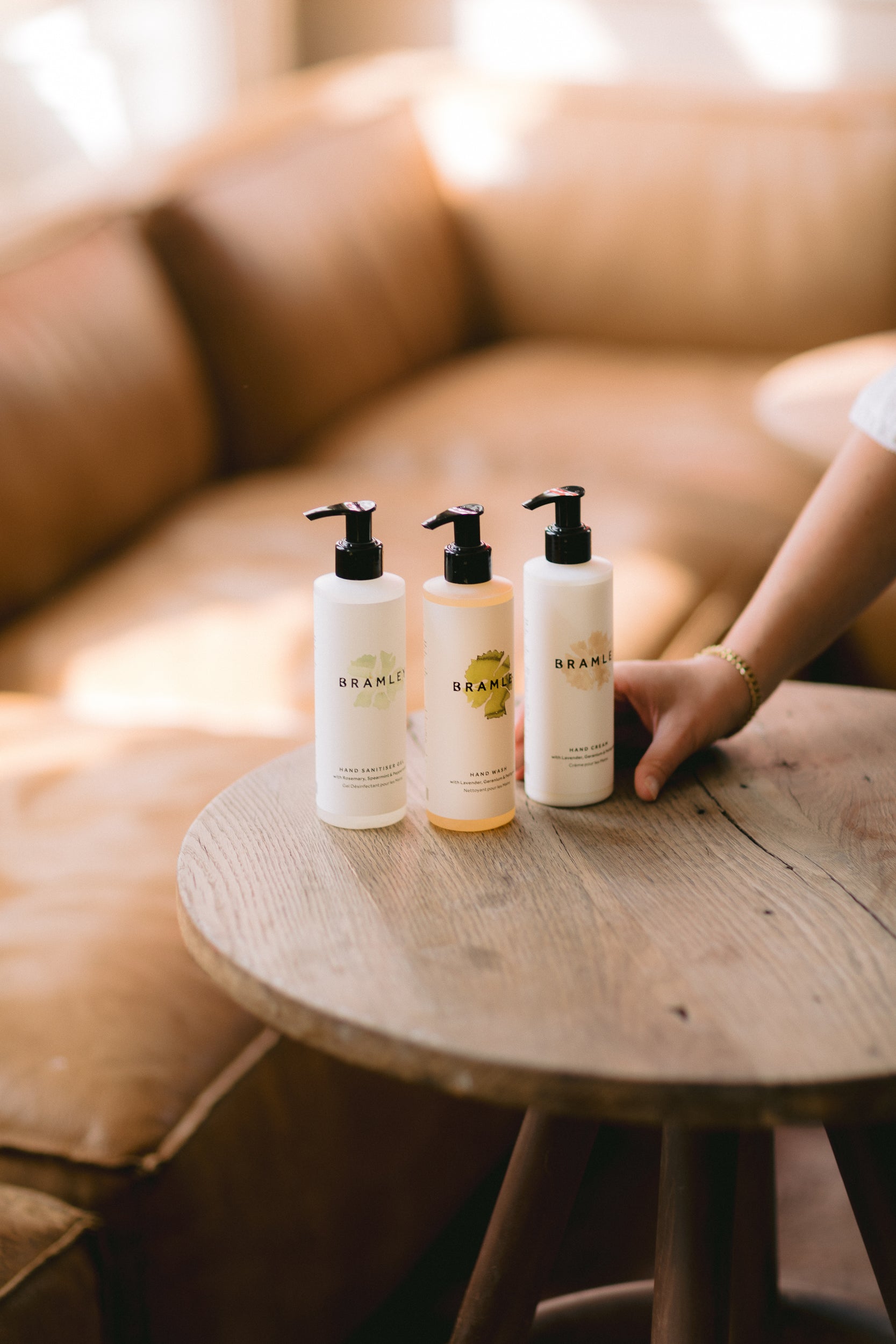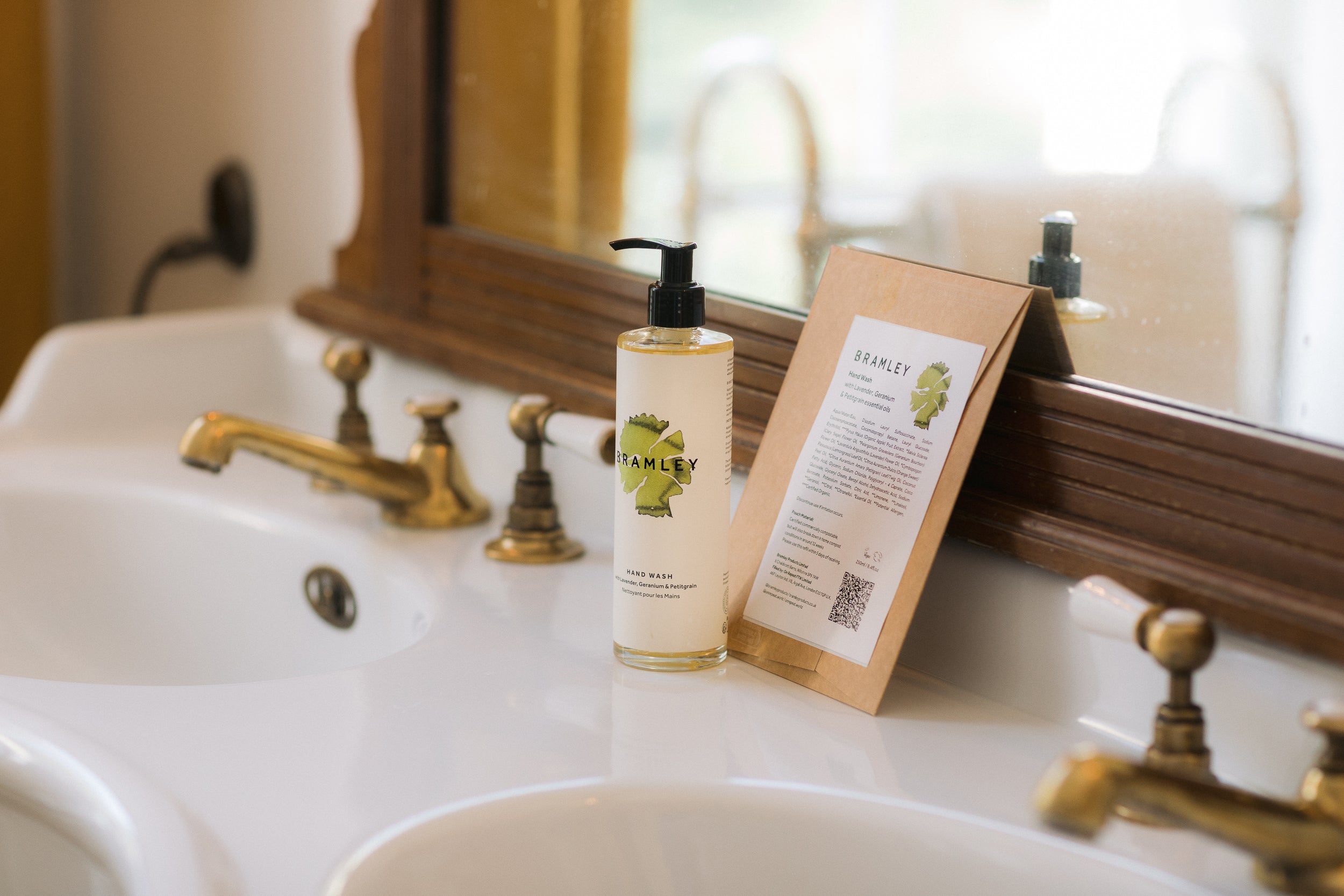Essential Oils, The Bare Basics

I’m sure a lot of you have heard brands talking about essential oils or seen them listed on your favourite products, but you might not know exactly what they are or what they do, so we’ve put together this guide to give you the low down on these wonderful ingredients.
What exactly are Essential Oils?

Essential oils within plants are the source behind their scent. When we experience the nostalgic smell of lavender or the festive fragrance of cinnamon, it is the essential oil within the plant which is responsible for that distinctive aroma. Essential oils can be found in any part of a plant – flowers, leaves, roots, stems, fruits. But just as we all differ in appearance, and quite frankly, scent. So do our flowery friends, meaning quantities of essential oils in each plant may vary. The scent has more to offer than purely to perfume, the essential oils also play a pivotal role in the plant's immune system by containing anti-viral and anti-fungal properties.
How are Essential Oils produced?

To better understand the significance of essential oils, it’s important to first come to grips with the means of extraction – essentially, how we get the oils out of the plant.
The majority of essential oils we use are produced by a process of distillation. The plant is placed in a container, then boiling water (or steam) is passed through the plant, this softens the plant matter, releasing the essential oil.
Citrus fruits such as bergamot, sweet orange, grapefruit and lemon are extracted via a process called expression, as their oil glands are found in the outer rind of the fruit. This method consists of grating the fruit against an abrasive surface to draw out the liquid, and was traditionally carried out by hand, although today machines are mainly used.
Finally, nitrogen and carbon dioxide extraction. These methods have the advantage of not using heat, unlike distillation, which can destroy the odour of delicate plants such as jasmine. Alternatively, the process is carried out under very high pressure using gas. Although still a relatively new process, it’s likely to become the primary source of extraction.
‘Exceptional’ Oil
Not only do the artful extraction methods make these aromas outstanding, but every single essential oil is comprised of hundreds of constituents which react with each other to create a unique and distinct scent. Similarly to the way our genetics are made up from thousands of chromosomes. It may come as no surprise therefore, that these complex natural processes are challenging to replicate artificially. Although some essential oils can be mimicked synthetically, the essence created will never be quite as authentic as it’s natural counterpart. It is for this reason that Bramley Products has always opted for using pure essential oils over synthetic substitutes. To find out more about which essential oils are used in Bramley’s Products head to our Glossary page, where you can find a description of each essential oil along with a list of the products it’s used in.
What can essential oils do for me?

Essential oils have an array of other properties, asides from their aroma. Let’s take Lavender for example, this quintessentially summery scent includes therapeutic properties that can help improve: acne, allergies, anxiety, burns, bruises, colds, cuts, depression, eczema, exhaustion, fear and flu. The alphabet of benefits continues including: reducing hyperactivity, soothing insect bites, insomnia, irritability, jet lag, mood swings, muscle aches, stress, sunburn, upset stomachs and worry; to name but a few. Essential oils can also go a long way in helping to contribute to a natural hormone balance and reduce the frustrations of menstruation with basil, chamomile, coriander, jasmine, lavender and sage all containing therapeutic properties which soothe period pains. Whilst: chamomile, clary sage, geranium, mandarin, and thyme are proven to reduce the signs of PMT. It will come as no surprise therefore, that not only do these oils excite our sense of smell, but have an overwhelmingly positive impact on our health and wellbeing as a whole.










